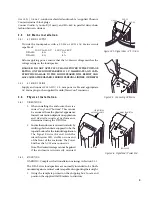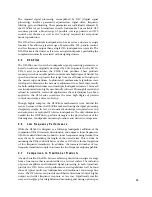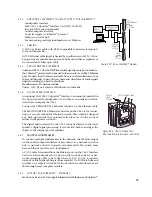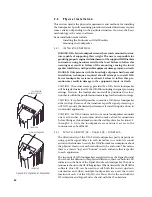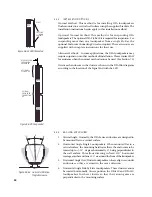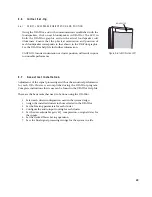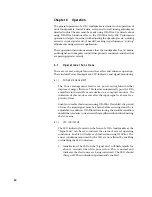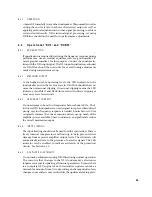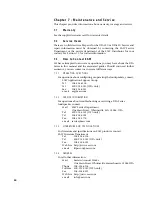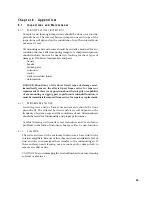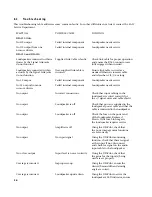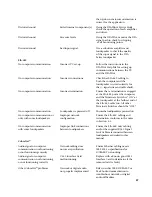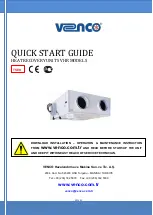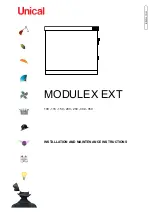
5 . 5
P h y s i c a l I n s t a l l a t i o n
This section details the physical requirements and methods for installing
the loudspeaker. Specific mounting procedures detailed herein may require
some variation depending on the particular situation. However, the basic
methodology is the same in all cases.
Basic installation tasks include:
Installing the Enclosure and Wall Brackets
Mounting the loudspeaker
5 . 5 . 1
I N S TA L L AT I O N WA R N I N G S
DANGER: DSA Series loudspeakers must be securely mounted to struc-
ture capable of supporting their weight. The user is responsible for
providing properly engineered attachment of the supplied Wall Brackets
to structure, using hardware rated for the load. Failure to follow this
warning may result in failure of the mounting causing the loud-
speaker to fall down, with possible equipment damage, injury, or death.
DANGER: Only persons with the knowledge of proper hardware and
installation techniques required should attempt to install DSA
Series loudspeaker systems overhead. Failure to follow this pre-
caution may result in damage to the equipment, injury, or death.
CAUTION: The actual coverage provided by a DSA Series loudspeaker
will be largely determined by the DSAPilot adjusting its signal processing
settings. However, the loudspeaker must still be positioned in a loca-
tion that is within the possible adjustment range for the desired coverage.
CAUTION: It is physically possible to mount a DSA Series loudspeaker
either end up. Because of the transducer-specific signal processing, it
will NOT provide the desired performance if installed upside down in
its intended application.
CAUTION: For DSA Clusters with two or more loudspeakers mounted
one over the other, it is recommended to make all cable connections
before lifting each loudspeaker onto the wall brackets. See Sections 5.2
through 5.6. Once the loudspeakers are mounted, access to the
connectors may be difficult.
5 . 5 . 2
P H Y S I C A L O R I E N TAT I O N – S I G N A L E N D / P O W E R E N D
The directionality of the DSA Series loudspeakers partly depends on
using specific signal delays to each transducer to control its sound
arrival to the listeners. As such, the DSAPilot makes assumptions about
the physical location of each transducer in the enclosure. This means
there is a correct “top” and “bottom” to each enclosure that is specific
to each application.
The two ends of DSA loudspeakers are referred to as the Signal End and
Power End. In addition to this physical difference, there is a built-in LED
indicator on the front of the Signal End of each loudspeaker. The orien-
tations are shown in the DSAPilot graphics. When activated by the DSAPilot
software, this LED can be used to verify both the correct up-down
orientation and, when multiple loudspeakers are used, the correct
location of each. For the DSA250, the Power End is the end with the
HF subsystem and Signal End is the end with the LF subsystem.
22
LED INDICATOR
ON FRONT SURFACE
SIGNAL END
POWER END
AC MAINS CONNECTOR
Figure 5.5.2 Signal End / Power End


